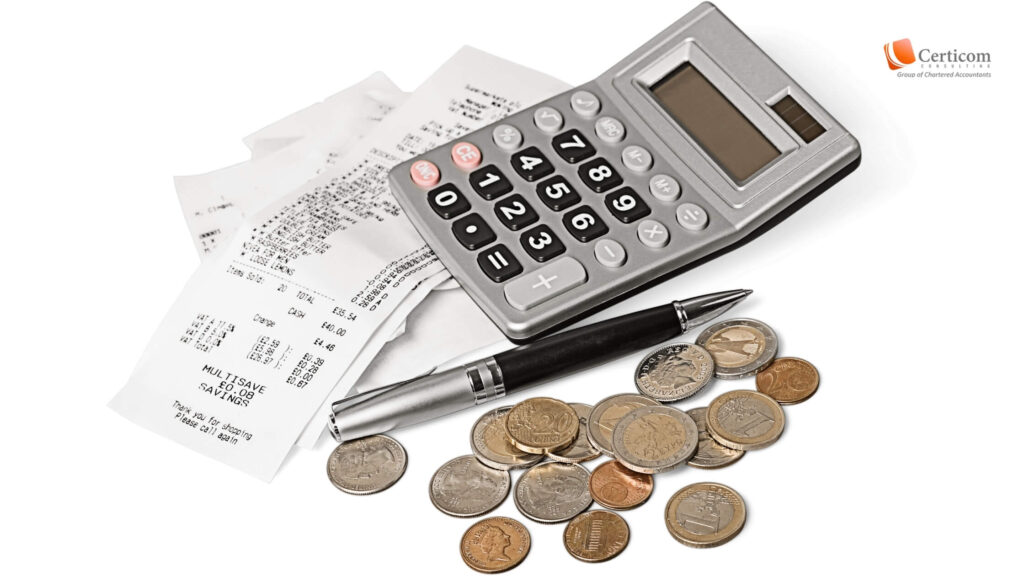Income Tax Filing (ITR) for AY 2024-25: Essential Documents Checklist

ITR filing deadline: Unless the government grants an extension, people have until July 31, 2024, to file their Income Tax Returns (ITR). In order to prepare for filing, it is crucial to gather and arrange relevant papers, such as bank statements, prior tax returns, and wage or income records. The filing procedure differs based on the kind and source of income, which can include, but is not limited to, earnings from investments, business income, salaries, and other categories.
The criteria for ITR documents differ from person to person based on the tax filer’s income sources. Certain documentation, however, must be submitted by each taxpayer.
The list of typical ITR documents needed to file an ITR for FY 2023–2024 (AY 2024–25) is provided below.
1. PAN Card
A PAN card is crucial for filing ITRs. It is required for TDS deductions and must be linked to your bank account to receive direct income tax refunds. Issued by the Income Tax Department, PAN details can be found on various documents such as the PAN card itself, Form 26AS, Form 16, and Form 12BB. Recently, taxpayers have the option to file ITR using their Aadhaar instead of PAN.

2. Aadhaar Card
According to Section 139AA of the Income Tax Act, individuals must provide their Aadhaar card details when filing returns. If you don’t have an Aadhaar card but have applied for one, you need to provide the enrolment ID in your IT returns. Linking PAN with Aadhaar allows for online income tax return verification via OTP. The deadline for filing income tax returns for individuals is July 31st annually. Aadhaar cards, issued by UIDAI, can be easily downloaded online if lost or misplaced.
3. Form 16
Generated by employers, Form 16 is a summary of an employee’s salary details and the TDS deducted from it. It has two parts: Part A, which shows the employer’s tax deductions, PAN, and TAN details for the financial year, and Part B, which includes TDS calculations such as gross salary breakdown, exempt allowances, and perquisites. You can still file your ITR even if you don’t have Form 16.
4. Form 26AS
Form 26AS is a summary of the taxes deducted and paid by you, provided by the Income Tax Department. It includes details of tax deductions by deductors, tax deposits by taxpayers, and tax refunds received during the financial year. You can access this form on the Income Tax Department’s website.
5. Section 80C Investment Documents
Investments under Public Provident Fund (PPF), National Savings Certificates (NSC), Unit Linked Insurance Plans (ULIPs), Equity Linked Savings Schemes (ELSS), and Life Insurance Corporation (LIC) policies qualify for deductions under Section 80C of the Income Tax Act. Keep all relevant slips, receipts, and documents related to these investments for tax savings purposes. It is advisable to preserve these documents for a few years as a precaution.

6. Other Required Documents
Ensure you have these documents or copies available for ITR filing:
- Contribution to Provident Fund
- Children’s school tuition fees
- Life insurance premium payments
- Stamp-duty and registration charges
- Principal repayment on home loans
- Equity Linked Savings Scheme/Mutual funds investments
The maximum deduction claimable under Section 80C is Rs 1.5 lakhs.
7. Bank Account Details
All current bank accounts must be disclosed in your income tax return. Include the bank name, account number, IFSC, and total number of accounts held. Designate one account as primary for tax refunds. Bank details are vital for verifying income disclosures and transactions, accessible via passbooks, statements, or online banking.
8. Annual Information Statement
The Annual Information Statement (AIS) provides taxpayers with a detailed overview of their information, similar to Form 26AS. Taxpayers can give feedback on the information displayed. The AIS includes both reported and modified values (after feedback) for sections like TDS, SFT, and other information.
9. Taxpayer Information Summary
The Taxpayer Information Summary (TIS) provides an aggregated summary of a taxpayer’s information. It includes processed and derived values under different categories such as Salary, Interest, and Dividend. This data is used for prefilling tax returns when applicable.
10. Home Loan Details
Home loan statements detailing principal and interest repayments are essential for tax filing. If you have a home loan from a bank, collect statements for the previous financial year.

11. Stocks and Property for Capital Gains Tax
For sales of shares, securities, or property, documentation such as broker statements and property sale deeds is required to report capital gains or losses.
12. Dividend Income
Investors holding shares or mutual funds must report any dividend income when filing their income tax return. The specifics of the dividends received throughout the financial year can be obtained from broker statements or Demat account summaries.
Related Post
Foreign Tax Credit in India: A Guide for NRIs
Top 10 Tax Filing Rules for FY 2024-25
Book A One To One Consultation Now For FREE
How can we help? *




